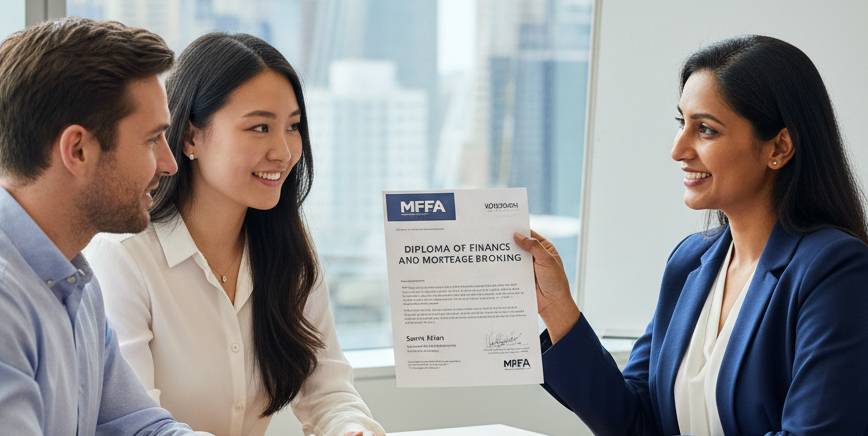What To Consider While Buying Property Off The Plan
- Home
- /
- What To Consider While Buying Property Off The Plan

- 01 Mar, 2024
Categories General
What To Consider While Buying Property Off The Plan
In simple terms, Buying A Property off the plan means to buy a property that is yet to be constructed. It involves a person entering into a legal contract to purchase a property before it reaches the final stage of its development. Both investors and home buyers go for the an off the plan purchase, but for different reasons.
Buying property off the plan may seem like a tricky option to consider. After all, you are just relying on the promise made by the seller that the property will be developed according to a certain plan on paper. You simply have access to a blueprint at the time you sign on the dotted line. It is often considered risky for buyers to buy off the plan and investors feel that it is always better to see exactly what you are putting your money into.
However, there are a number of advantages of buying off the plan if the purchase is backed by meticulous planning and research.
Advantages of buying off the plan
- You get access to the best prices for your property as real estate developers offer a lower price and financial incentives before construction begins.
- By locking in the property at the current market price, you can look forward to capital growth as the property increases in value over time.
- For first time home buyers who are usually short of funds, it is a good option as you get time to organise your finances and hunt for a suitable mortgage plan till the time the property has been built. Initially, you are just required to pay a 10% deposit to secure your home.
- You get access to financial gains like low stamp duty , tax depreciation benefits, and government grants.
Risks associated
There’s always a risk factor associated with the ‘buy now, pay later’ arrangement. For starters, there may be variations in what you were originally promised and what is actually delivered. Let us see what are the other drawbacks of buying off the plan.
- Due to unanticipated scenarios that may arise during the development process, real estate developers reserve the right to make changes as required and it may happen that you are not satisfied with the end result.
- There is always a possibility that the project might be aborted in between due to unexpected circumstances.
- There can be ambiguity in contract terms which sometimes become a major cause of disputes later.
- If the Real Estate Market falls over time, the result could be a decrease in the property value. This means that you ended up booking the property at a much higher price than its market value upon completion. This could affect you when you are looking at completing the purchase, like two years later, when your property is ready.
- It is difficult to anticipate the resale value of off the plan properties. If you are planning on earning a profit on selling the property once construction is complete, make sure that you have the correct estimate of the value of the property. New real estate projects keep coming up every now and then. It is common for property values to go down because of supply taking over demand as a result of new projects coming up in the area.
Once you have weighed your pros and cons, you have to consider certain tips and strategies when you want to buy off the plan.
#1 Do your due diligence
Before you finalize the property and sign the contract, research and find out all the important details; do not just buy the first property you look at. Find out everything about the developer, including their previous projects and reviews from buyers.
Gather information regarding the real estate scenario in the area. Get to know the median price growth, vacancy rates, and demographics. Find out about the transportation facilities, shopping centres, hospitals, and other important amenities.
#2 Take professional help
Off the plan contracts are different from those of fully-developed properties. The contract has room for the developer to make changes in the design or layout, completion time or even the price. It is important that you rope in a reliable solicitor or conveyancer to review the clauses of your contract.
The first thing to look at is sunset clauses, which set a sunset date, the date by which if the property is not built fully, any of the two parties can back out. Next, look for the clauses that allow for design or layout changes.
Also, the completion and settlement time should be noted so that you know when and how much to arrange for finances. Take help from your mortgage broker if you are planning to apply for a loan.
#3 Be ready with your deposit amount
Buying off the plan needs you to pay a deposit that amounts to 10% of the value of the property. You may have to arrange for a bank guaranty or a deposit bond, depending on the developer you choose. Cash deposit also works with some of them. Your mortgage broker can take you through your payment process smoothly.
#4 Get a loan pre-approval
Some lenders offer a pre-approved loan which basically helps you get a loan limit approved beforehand. This will free you from the burden of arranging for finances at the time of settlement. A pre-approved loan only requires a proof of deposit, proof of income and monthly expenses and other outgoings like credit cards, loans etc.
Once you have a pre-approved the loan in place, a full approval will simply take you a few hours. A mortgage broker will help you secure the best loan for you after calculating your borrowing capacity. Most banks require updated income proofs and statement of position at the time of formal approval.
#5 Work out your final loan
Your mortgage broker will help you to proceed with your home loan application at the time of settlement. The lender will value new property before formal or unconditional approval. If your valuation falls short, you have to provide evidence of funds to cover all shortfall.
If it is not possible for you to arrange for finances, your mortgage broker may help you to get a new valuation from a different lender . You can also consider using equity from another property you own. Once you have submitted your documents to the lender, your mortgage broker will collaborate with the lender and your conveyancer for the settlement process.
Over To You
So, now you are aware of the two sides of the coin when it comes to buying off the plan. You also have an idea of how to go about the process of arranging for its finances. Weigh out the risks and the benefits associated with buying off the plan, take a wise and calculated decision by asking yourself the right questions. The right choice will actually give you a better deal than others in the same residential area, within the same or even a lower cost.
Happy home buying to you.
Latest Posts
-

-

-

How Mortgage Brokers Can Save You Time and Money 13 Oct, 2025


































